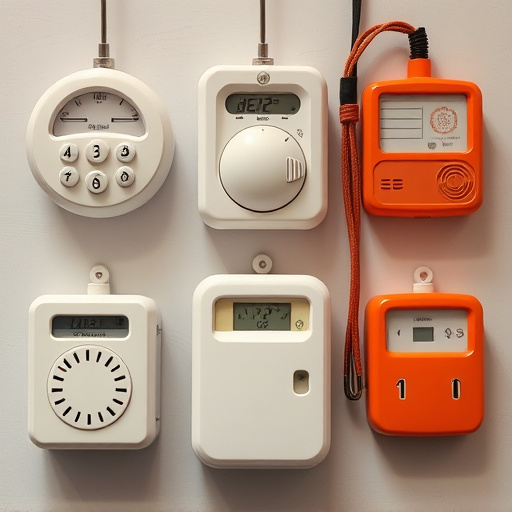Personal protection beacons with integrated GPS technology offer enhanced safety features, including a powerful Personal Attack Alarm Sound within a defined range. These devices accurately track users' locations, aiding rescue teams in remote areas and proving invaluable for outdoor enthusiasts and isolated workers. By prioritizing signal range, a robust alarm sound, accurate GPS, water resistance, and extended battery life, users can ensure quicker emergency responses and peace of mind while engaging in outdoor activities or working in remote locations.
Personal protection beacons with GPS are indispensable tools for safety and peace of mind. In this article, we’ll explore the crucial role these devices play in emergency situations. From understanding their core functionality, delving into the significance of GPS tracking, to identifying key features like sound range, we aim to equip folks with knowledge to make informed decisions. Discover how these beacons, emitting a distinct personal attack alarm sound, can enhance your safety across various terrains and conditions.
- Understanding Personal Protection Beacons: Unveiling Their Functionality
- The Role of GPS in Tracking and Safety
- Features to Consider When Choosing Your Beacon Device
Understanding Personal Protection Beacons: Unveiling Their Functionality
Personal protection beacons, equipped with GPS technology, are innovative devices designed to ensure individual safety and provide a sense of security while navigating unfamiliar or potentially dangerous environments. These compact tools emit a distinct Personal Attack Alarm Sound within a specified range, allowing users to signal for assistance in emergency situations. The beacon’s GPS functionality enables accurate location tracking, which can be immensely valuable when lost or facing an unexpected hazard.
The device operates by sending out signals that can be detected by nearby satellites or ground-based reception stations. This real-time tracking capability is particularly useful for outdoor enthusiasts, adventurers, and individuals working in remote locations. By activating the beacon, a user can alert emergency services or companions of their distress, fostering quicker response times and potentially saving lives.
The Role of GPS in Tracking and Safety
The Global Positioning System (GPS) technology plays a pivotal role in personal protection beacons, ensuring users’ safety and enabling quick tracking in emergencies. By integrating GPS with other sensors, these devices can pinpoint an individual’s location accurately, which is essential during unforeseen situations like personal attacks or getting lost in remote areas. The ability to determine the user’s precise position allows rescue teams to swiftly locate and assist them, especially in vast or rugged terrains where traditional navigation methods might fail.
Furthermore, GPS-enabled personal protection beacons offer a crucial feature: tracking range. These devices broadcast their signals, allowing receiving units or apps to monitor the user’s movement within a defined radius. This real-time tracking capability is beneficial for outdoor enthusiasts, travelers, and individuals who work in isolated locations, providing peace of mind and an added layer of security through the consistent monitoring of their GPS coordinates. Additionally, when coupled with a Personal Attack Alarm Sound, these beacons can deter potential threats and alert nearby friends or authorities in case of distress.
Features to Consider When Choosing Your Beacon Device
When selecting a personal protection beacon with GPS, several key features should be at the top of your list. Firstly, consider the range of the device’s signal. A broader range ensures faster response times from emergency services, especially in remote areas. Secondly, the Personal Attack Alarm Sound is vital; a loud, distinct alarm can deter attackers and alert nearby people for help.
Other important aspects include GPS accuracy and reliability, as it determines the precision of your location sharing. Additionally, look for water resistance or buoyancy if you plan to use the beacon outdoors or near bodies of water. Battery life is also crucial; opt for devices with longer battery durations, especially in emergency situations where quick access to a power source may be limited.
Personal protection beacons equipped with GPS technology offer a vital safety net for individuals in distress or emergency situations. By combining advanced tracking capabilities with an easily audible personal attack alarm sound, these devices ensure users can be quickly located within a specified range. When choosing a beacon, consider factors like sound intensity, battery life, and water resistance to suit your needs. Investing in one of these devices could prove invaluable, providing peace of mind and the potential to save lives.
